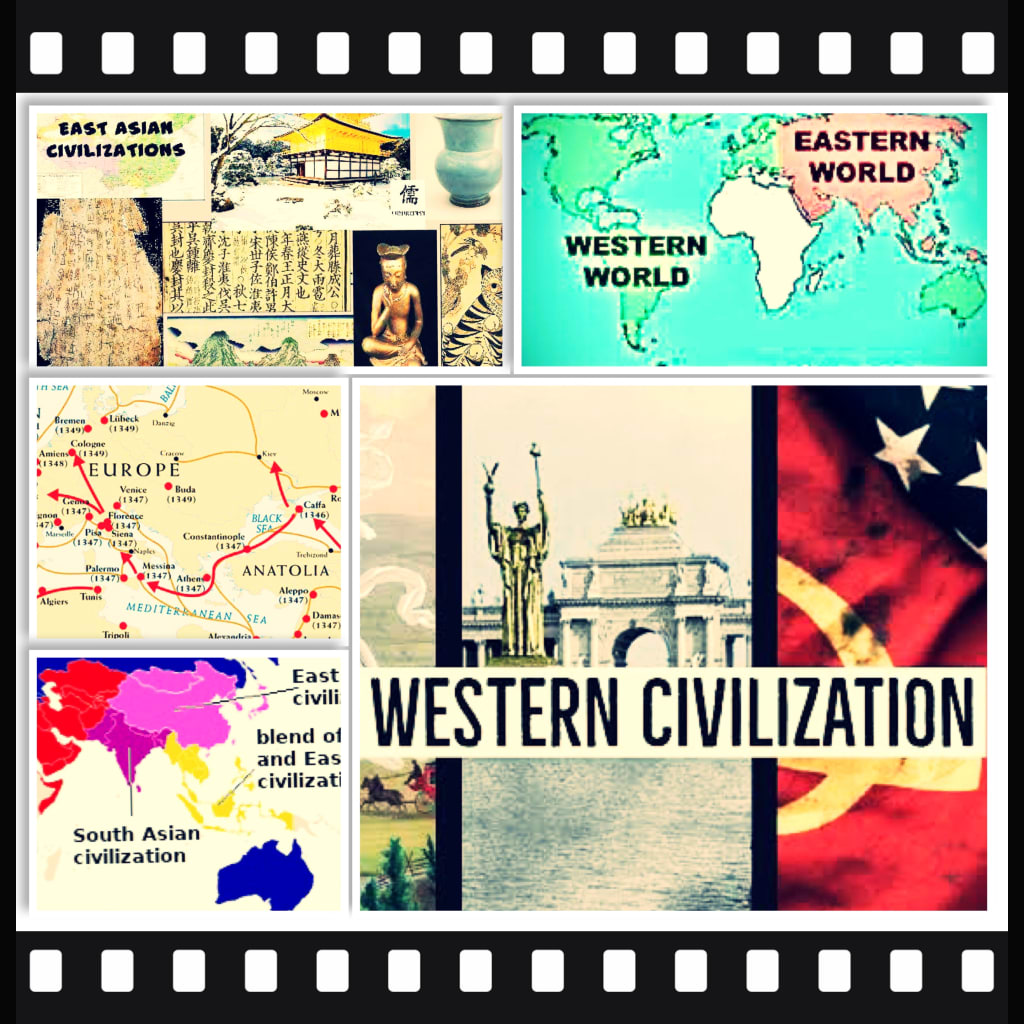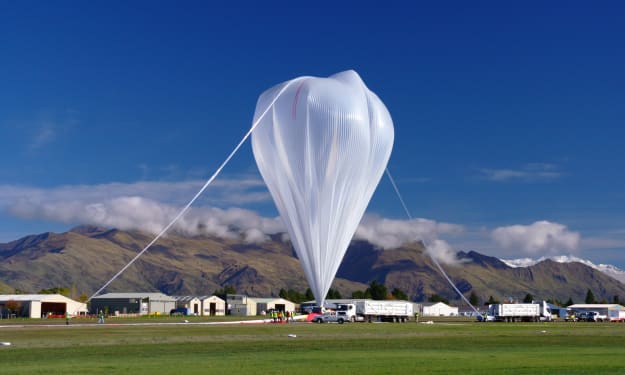Content warning
This story may contain sensitive material or discuss topics that some readers may find distressing. Reader discretion is advised. The views and opinions expressed in this story are those of the author and do not necessarily reflect the official policy or position of Vocal.
Western Vs Eastern Civilisation
Western Civilisation,Eastern Civilisation

Western and Eastern civilisations are broad terms that encompass a vast array of cultures, histories, and traditions. Certainly,here are some general facts about Western and Eastern civilisations :
Western Civilisation:
- Origin : Western civilisation traces its roots back to ancient Greece, which gave birth to concepts of democracy, philosophy, and rational thinking. It later expanded to include the Roman Empire and Christianity. Philosophers of western like Socrates, Plato, and Aristotle ,famous in the world ,laid the foundation for western philosophical thought.
- Cultural Influence: Western civilization has had a significant influence on the world in areas such as art, literature, music, science, and technology. Prominent figures like Leonardo da Vinci, William Shakespeare, and Albert Einstein have emerged from Western cultures.
- Governance: Western civilization has been characterized by various forms of government, including monarchies, republics, and democracies. Concepts of individual rights, rule of law, and separation of powers have played a significant role in Western governance systems.
- Religion: Historically, Christianity has been the dominant religion in Western civilizations, although there is religious diversity within Western countries today.
- Scientific and Technological Advancements: Western civilization has made significant contributions to science and technology, including the development of the scientific method, breakthroughs in medicine, and advancements in engineering and industrialization.
- Enlightenment: The Enlightenment period of the 17th and 18th centuries in Europe marked a period of intellectual and philosophical advancements that influenced Western civilization. Ideas of reason, individual liberty, and human rights emerged during this period.
- Industrial Revolution: The Industrial Revolution, starting in the late 18th century in Britain, transformed Western civilization by ushering in the mechanization of production, urbanization, and significant technological advancements.
- Renaissance: The Renaissance, which began in Italy in the 14th century, marked a period of great cultural and intellectual revival in Western civilization. It witnessed remarkable advancements in art, science, and humanism, with figures like Leonardo da Vinci, Michelangelo, and Galileo Galilei.
Eastern Civilisation:
- Origins: Eastern civilisation has diverse origins, with major influences from ancient civilizations such as China, India, and Persia. Each region has unique cultural, religious, and philosophical traditions.
- Ancient China: Ancient China has a rich history dating back thousands of years. It contributed to various fields, including philosophy, art, medicine, and governance.
- Cultural Diversity: Eastern civilizations encompass a wide range of cultures, including Chinese, Indian, Japanese, Pakistani,Korean, and Southeast Asian cultures. Each culture has its own distinct traditions, arts, languages, and belief systems.
- Golden Age of Islam: The Islamic Golden Age, spanning from the 8th to the 14th centuries, witnessed significant advancements in science, mathematics, medicine, and philosophy. Scholars like Avicenna, Al-Khwarizmi, and Averroes made notable contributions during this period.
- Philosophical Traditions: Eastern civilizations have rich philosophical traditions, such as Confucianism, (which emphasises social harmony, respect for authority, and moral conduct.)Taoism,(encourages living in harmony with nature and simplicity.) Buddhism, Hinduism and Muslimism. These traditions emphasize concepts like harmony, balance, spiritual enlightenment, and moral virtue.
- Influence on the Arts: Eastern civilizations have made significant contributions to various art forms, including calligraphy, painting, sculpture, music, dance, and theater. Traditional art forms often reflect spiritual or philosophical themes.
- Silk Road: The Silk Road, a network of trade routes connecting Eastern and Western civilizations, played a crucial role in the exchange of goods, ideas, and cultural practices. It facilitated the spread of Islam,Christianity Buddhism, Hinduism, and other religions, as well as the trading of silk, spices, and other commodities.
- Family and Community: Eastern cultures tend to place a strong emphasis on family and community values. Concepts of filial piety, respect for elders, and communal harmony are often highly valued.
- Japanese Feudalism: Japan developed a unique feudal system during the Middle Ages, known as the samurai era. It featured a strict social hierarchy and the code of honor known as Bushido, which greatly influenced Japanese culture and values.
- Technological Advancements: Eastern civilizations have a long history of scientific and technological achievements. Ancient China, for example, made advancements in areas such as papermaking, printing, gunpowder, and the compass.
- Traditional Medicine: Eastern civilizations have developed unique systems of traditional medicine, such as Traditional Chinese Medicine (TCM) and Ayurveda in India, which focus on holistic approaches to health and well-being.
It's important to note that these facts provide a general overview, and there is significant diversity and variation within each civilization .These facts provide a glimpse into the rich histories and contributions of Western and Eastern civilizations. However, they only scratch the surface of the vast and diverse cultural, intellectual, and historical developments within each civilization.
About the Creator
Muteeba Akbar
AOA!Welcome.I’m From PAKISTAN🇵🇰.In a world hungry for stories that touch the soul,it stands as a Piece of inspiration & creativity.The tales resonate with authenticity,reminding us of the power of storytelling to unite,inspire,&transform.
Enjoyed the story? Support the Creator.
Subscribe for free to receive all their stories in your feed. You could also pledge your support or give them a one-off tip, letting them know you appreciate their work.






Comments
There are no comments for this story
Be the first to respond and start the conversation.